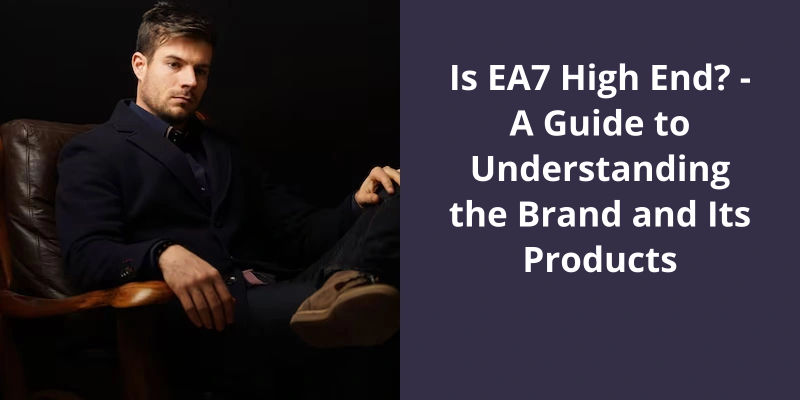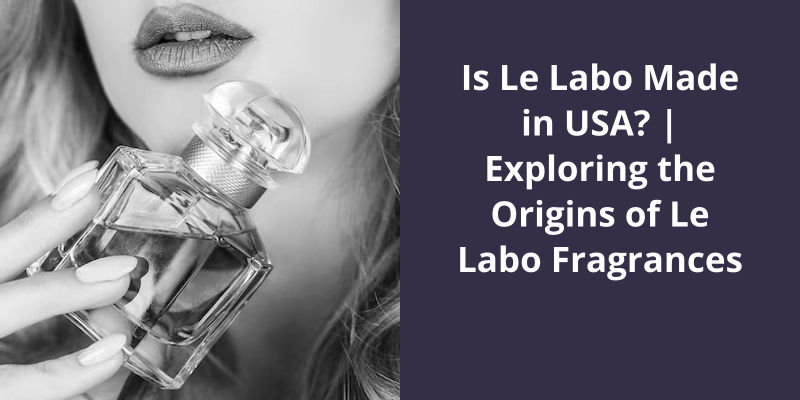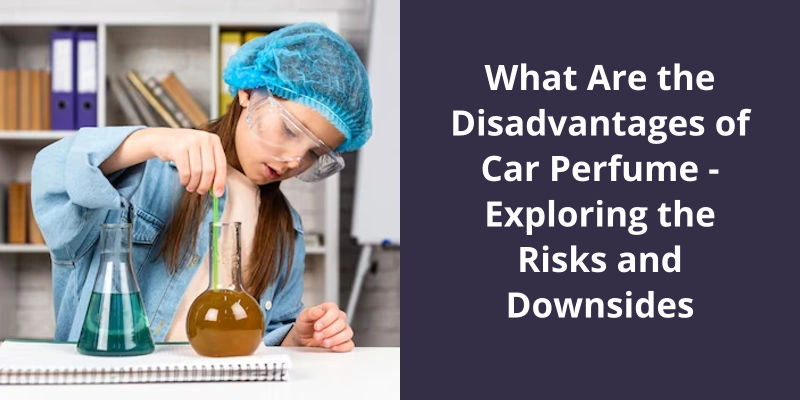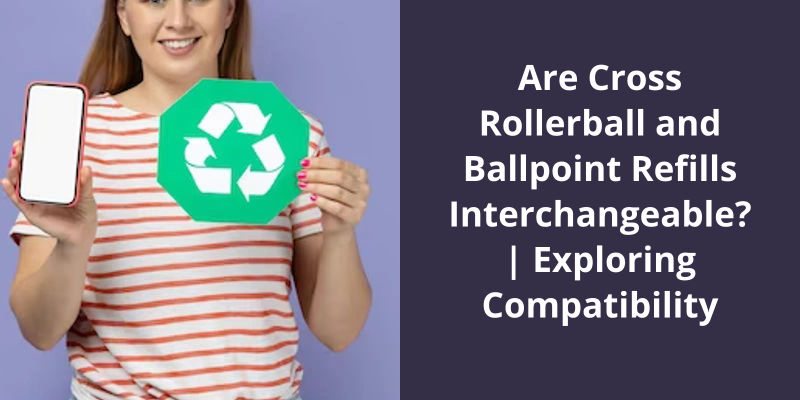L’Oreal, a French multinational cosmetics company, owns a multitude of makeup brands. Some of the most well-known include Maybelline New York, a brand celebrated for its affordable yet high-quality beauty products, and Urban Decay, which has gained fame thanks to its trendy and edgy products. The luxury brand Lancôme is also owned by L’Oreal, offering buyers a wide range of high-end makeup. For budget-conscious customers, L’Oreal owns NYX Professional Makeup known for its extensive color palette and professional grade products. Lastly, the well-known brand Giorgio Armani’s beauty line is also under L’Oreal’s vast umbrella.
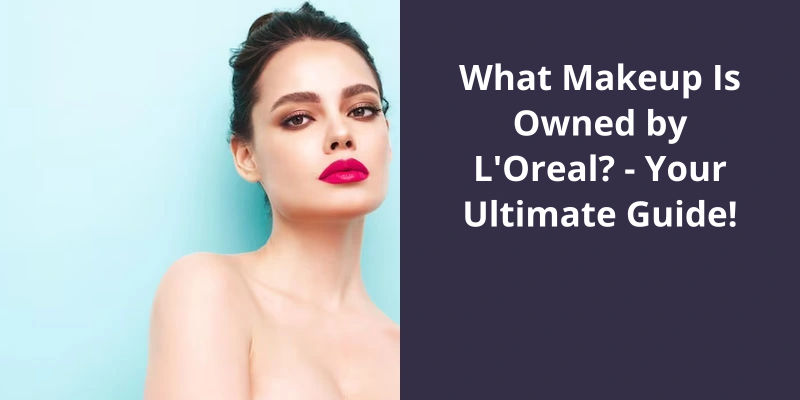
Is Maybelline a Loreal Product?
LOréal S.A. is a well-known powerhouse in the beauty industry, boasting an impressive portfolio of 36 global brands. Among these, Maybelline is one of the most recognized and popular cosmetic lines owned by LOréal. Founded by a pharmacist named Thomas Lyle Williams in 1915, Maybelline has a rich history and a strong reputation for producing high-quality makeup products that are accessible to all.
The idea for Maybellines most iconic product, mascara, came to Williams when he saw his older sister applying a homemade concoction of Vaseline and coal dust to her lashes. He then set out to create a similar product that could be sold commercially and named it Lash-Brow-Ine. The rest, as they say, is history. Over the years, Maybelline has expanded it’s product line to include a wide range of cosmetics, from foundations and lipsticks to eyeshadows and nail polishes.
NYX Professional Makeup is another well-known brand that’s owned by LOréal. This American company was founded by Toni Ko in 1999 and is named after the Greek goddess of the night, Nyx. The brand is known for it’s fun and edgy makeup products that are popular among beauty enthusiasts around the world. With a wide range of affordable and high-quality makeup items, NYX has become a favorite brand for those seeking a bit of glam and experimentation in their beauty routine.
Redken is an American hair care brand that’s also owned by LOréal. The brand has always been at the forefront of hair technology, constantly striving to provide customers with the best possible products for their hair type and needs.
CeraVe is a relatively new addition to the LOréal portfolio, having been acquired by the company in 20This skincare brand is renowned for it’s gentle and effective formulas, which are designed to cater to the needs of people with sensitive skin. CeraVes products are based on the science of ceramides, which are natural lipids that help to maintain and strengthen the skins protective barrier. With a wide range of moisturizers, cleansers, and other skincare products, CeraVe has quickly become a favorite among dermatologists and consumers alike.
Maybelline, NYX Professional Makeup, Redken, and CeraVe are just a few of the many well-known brands under the LOréal umbrella, each with a unique history and reputation for quality and innovation. Whether youre looking for a bold new makeup look, a solution to a pesky skin issue, or just want to keep your hair looking it’s best, LOréal has a brand that can meet your needs.
The Impact of LOréal’s Global Reach on the Beauty Industry.
This topic explores how L’Oréal’s widespread presence across the world has influenced the beauty industry.
With it’s vast collection of high-end beauty brands, Estée Lauder Companies has made a strong name for itself in the cosmetics and personal care industry. But one question that often comes up is whether the company is affiliated with another major player in the market – L’Oréal. While there are no connections between the two entities, Estée Lauder is nevertheless a significant force to be reckoned with, boasting an impressive portfolio of popular beauty brands that span the globe.
Is Estee Lauder Part of Loreal?
Estée Lauder is a company that’s it’s own unique history and trajectory. Founded by Estée Lauder herself in 1946, the brand quickly became known for it’s exceptional skincare and makeup products. Today, Estée Lauder is well-respected in the cosmetics industry and is recognized as one of the worlds leading brands. Despite rumors to the contrary, Estée Lauder isn’t a part of LOréal.
This means that anyone can purchase stock in the company and become a part owner. In addition to owning several famous beauty brands, the company also has an extensive retail network, with it’s products sold in many prestigious department stores and dedicated Estée Lauder stores around the world.
While the company may not be part of LOréal, it’s certainly a major player in the beauty world and will likely continue to be for many years to come.
A Comparison of Estée Lauder and L’Oréal: Their History, Market Position, and Product Offerings
- Estée Lauder founded in 1946
- L’Oréal founded in 1909
- Estée Lauder focuses on high-end luxury beauty products
- L’Oréal offers a range of affordable to high-end beauty products
- Estée Lauder owns several luxury beauty brands such as MAC, Clinique, and Tom Ford Beauty
- L’Oréal owns drugstore brands such as Maybelline, L’Oreal Paris, and Garnier
- Estée Lauder’s revenue was $13.68 billion in 2020
- L’Oréal’s revenue was €27.99 billion in 2020
- Estée Lauder is known for their iconic fragrances such as Youth-Dew and Beautiful
- L’Oréal is known for their haircare products such as L’Oreal Paris Elvive and Garnier Fructis
Aside from it’s own brand, L’Oréal also owns L’Oréal Luxe, which holds an impressive portfolio of 23 makeup brands, 19 of which are global brands. These brands range from highly-aspirational to multi-expert, such as Lancôme, Yves Saint Laurent, and Giorgio Armani. Among these major names is Lancôme, founded in 1935 by the visionary pioneer perfumer Armand Petitjean, with a mission focused on enhancing every woman’s beauty through quality, science, and efficacy.
How Many Makeup Brands Does Loreal Own?
LOréal is a leading beauty company that owns a diverse range of makeup brands. As of today, the company holds a portfolio of 23 brands, with 19 of them being global brands. These brands range from major, highly-aspirational, and multi-expert brands such as Lancôme, Yves Saint Laurent, and Giorgio Armani, to lesser-known but still impactful brands like NYX Professional Makeup and Urban Decay.
One of LOréals most popular makeup brands is Lancôme, which was founded in 1935 by the visionary pioneer perfumer Armand Petitjean. For the past 85 years, Lancômes mission has been to make all women happier by making them more beautiful, providing the best of cosmetics innovation in terms of quality, science, and efficacy. Today, Lancôme is renowned for it’s range of luxury makeup products, including foundations, mascaras, lipsticks, and eyeshadows.
Another popular makeup brand owned by LOréal is Yves Saint Laurent, a luxury fashion and beauty brand that was established in 196Yves Saint Laurent makeup products are known for their high quality, bold colors, and innovative formulations.
Giorgio Armani is another top makeup brand owned by LOréal, renowned for it’s sleek design, high-quality formulation, and bold color choices. Created in collaboration with the famous Italian fashion designer Giorgio Armani, this makeup brand has become a household name in the beauty industry, thanks to it’s long-lasting and nourishing products.
With such a vast range of beauty products available, it’s hard not to be familiar with the name L’Oréal. From haircare to makeup to fragrance, L’Oréal has something for everyone. But with so many options, it can be overwhelming to know which products to choose. In this article, we’ll take a closer look at some of L’Oréal’s most popular products and explore what sets them apart from the competition.
How Many Products Does Loreal Have?
With over a century of experience within the beauty industry, LOréal has a wide-ranging portfolio that caters to every beauty need. From iconic drugstore staples like LOreal Paris to luxury brands like Lancome, the company offers a vast array of products at various price points.
LOréals hair care lines include shampoos, conditioners, and styling products designed to cater to various hair types and concerns. They offer dyes and colour preserving products like their iconic Elnett hairspray. Their skincare range includes everything from sunscreens to anti-aging serums like the well-known LOreal Revitalift. The company also offers a line of mens grooming products and fragrance lines that cater to both men and women.
One of LOréals strengths is it’s corporate social responsibility initiatives. The company has a history of investing in sustainability and ethical consumerism, which is reflected in their products. For example, they’ve implemented eco-friendly packaging solutions, ensure fair labour practices in their supply chain, and support initiatives to reduce their use of animal testing.
Some of the biggest names in the beauty industry have collaborated with LOreal to create products, such as sought after collaborations with Balmain and Karl Lagerfeld, which have resulted in bold and creative collections.
When it comes to makeup, LOréal has everything from everyday essentials like the True Match foundation to seasonal collections and colors that follow the latest trends. They offer everything from dramatic false lashes to natural looks, so there’s something for everyone. Overall, LOréals size and dedication to beauty ensure that they’ve a comprehensive offering, making them a household name in the world of beauty.
A Deeper Dive Into LOréal’s Corporate Social Responsibility Initiatives and Sustainable Practices in the Production and Packaging of Their Products.
- LOréal’s commitment to sustainable practices in product manufacturing and packaging
- Ensuring traceability of ingredients sourced from suppliers to guarantee environmental and social responsibility
- Investment in research to reduce water consumption and waste in production processes
- Efforts to reduce carbon footprint through renewable energy sources and transportation optimization
- Support for local communities and preservation of biodiversity through partnerships with non-profit organizations
- Implementation of recycling initiatives for packaging materials
Now, let’s take a closer look at L’Oréal’s recent acquisition of Aesop and the opinions of industry analysts on this deal.
What Brand Did Loreal Acquire?
LOréal, one of the worlds largest cosmetics companies, recently announced the acquisition of Aesop, an Australian luxury skin care brand. The deal is worth an estimated $2.5 billion and marks a significant move for LOréal in the high-end skin care market. Analysts have shared their views on the acquisition, assessing the potential benefits and drawbacks for both companies.
On the other hand, some analysts have expressed concerns about the potential for LOréal to dilute the Aesop brand. Aesop has built it’s reputation on being a boutique brand with a handcrafted, artisanal approach to product development. There’s a risk that LOréal may attempt to streamline or automate some of the production processes in order to increase efficiencies, potentially compromising the brands unique identity and appeal.
Another aspect of the deal that’s raised questions is the price that LOréal has paid for Aesop. While Aesop does have a strong brand and customer base, some analysts have questioned whether the acquisition is worth the significant premium that LOréal has paid. It remains to be seen whether Aesops revenue and profitability can justify the high price tag.
While there are potential risks and challenges associated with the deal, there’s also potential for significant benefits for both companies if they’re able to work together effectively. As the two companies begin to integrate and collaborate, it will be interesting to watch how they navigate the challenges and opportunities of this exciting new partnership.
Conclusion
Apart from it’s original product lineup, the company's growth strategy by acquiring iconic brands such as Maybelline New York, Garnier, and NYX Professional Makeup has allowed it to expand it’s reach and offer a diverse mix of products to cater to a wider audience.


